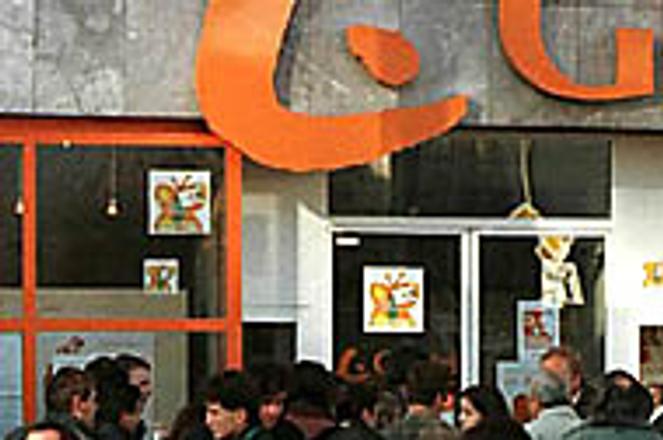The state's 36% share in mobile operator Globtel was sold despite fears of market apathy.photo: TASR
The state's 36% share in mobile telecoms operator Globtel was sold for nine billion crowns ($180 million) June 14 to a 10-member consortium led by insurance giant AIG.
The deal represented an 800% return on the original investments made by five state energy companies (gas giant SPP, power monopoly Slovenské elektrárne, and three power distributors, VSE, SSE and ZSE) whose stakes were sold. The government immediately hailed the deal a success, and pledged revenues to clearing mutual debts between SE and the distributors.
The debt settlements are seen as an important step in the privatisation of the firms in the next 14 months and future liberalisation of the energy market.
"This positive transaction will help the power firms to clear their financial positions and prepare for their and SE's privatisation," said Peter Benčúrik, spokesman for the Economy Ministry.
Although the consortium is led by AIG, the full structure of the investment has not been revealed, and it is unclear whether or not France Telecom, current owner of a 64% share in the mobile operator, was involved in the buy as part of the purchasing group.
However, if it were, many experts believe that Globtel could see a further rise in investments from its present majority owner, bolstering its position as market leader in Slovakia.
Holding a 57% share of the market, Globtel has in recent years outperformed its only rival in the mobile market, Eurotel.
Majority-owned by fixed-line monopoly Slovenské telekomunikácie (ST), Eurotel reported 560,532 active clients at the end of the first quarter of this year. Globtel registered 749,862 clients at the end of the same period.
Both companies, though, have reported rapidly growing demand in their sector, and say they expect the present 21% mobile penetration rate (the percentage of the population who own mobile phones) to rise to 30% by the end of this year.
However, despite the government's claims of success, the sale price is below that which was originally expected in an IPO last year. Cabinet had planned an offering on the London bourse for the third quarter of 2000, with Globtel valued at $700 million, but cancelled the offering after a global turndown in telecoms stocks.
With the state having been in negotiations with AIG since the beginning of the year, analysts now say that the government's success lies in selling the stock at all.
"The price is lower than could have been expected in the IPO, but bearing in mind that the [world] telecoms market has tailed off, it's good that the state got to sell it at any price," said Ivan Chodák, analyst at CAIB Securities.
Potentially lucrative
The consortium's members will be entering one of Slovakia's potentially most lucrative sectors. Still to be fully liberalised, the telecoms sector, particularly mobile telcommunications, has seen rapid growth in recent years, with nearly a third of the population expected to own a mobile phone by the end of this year.
Growth in data transfer operations, as Internet penetration rates and demand for quick data transfers grows in Slovakia, is also expected. Globtel has announced it is to buy a fibre-optic network to secure quicker and faster data transfer.
The state recently ran a successful tender for three operating licences for Fixed Wireless Access (FWA) - a service which allows high-speed data transfers over radio waves rather than using ST-owned ground cables - attracting five bidders. Nextra Wireless, GiTy Slovakia and Callino eventually won, paying $70 million each for a licence.
Following Deutsche Telekom's summer 2000 acquisition of ST, at the beginning of this year telecoms giant British Telecom (BT) and Irish group E-Tel both launched operations in Slovakia, focused on data transfer and Internet services.
And in preparation for the end of the fixed-line monopoly in January 2003 the state is also to set up a new telecoms company, EnergoTel, to provide competition to ST. Using cables already in place along energy company pipelines, EnergoTel is expected later to be sold to a strategic investor.
It is thought that prior to liberalisation, many firms will look to enter the sector and establish themselves, expanding when ST's fixed-line monopoly ends in 2003.
"There isn't that much room on the market for many telecoms operators but there is very strong potential in areas like data transfer. Those companies coming here will be looking to get a foothold and to be in a good position to work on the market when it is finally liberalised," said CAIB's Chodák.


